Gardeners Eltham: Cultivating Green Spaces in Your Community
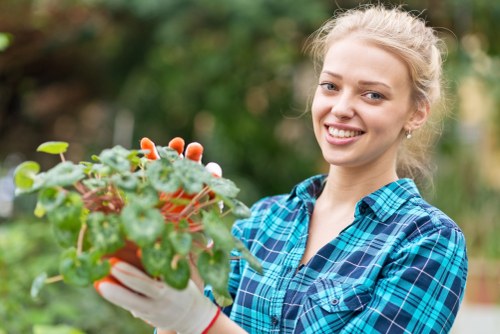
Eltham, a vibrant area in southeast London, is renowned for its beautiful gardens and green spaces. Whether you're a seasoned gardener or just starting out, Gardeners Eltham offers a wealth of resources and support to help you create and maintain a thriving garden.
From local nurseries to community gardening groups, Eltham provides numerous opportunities for gardening enthusiasts. The area's mild climate and fertile soil make it an ideal location for a wide variety of plants, flowers, and vegetables.
In this article, we'll explore the best tips, resources, and places for gardeners in Eltham, ensuring your garden flourishes all year round.
Why Eltham is Ideal for Gardening
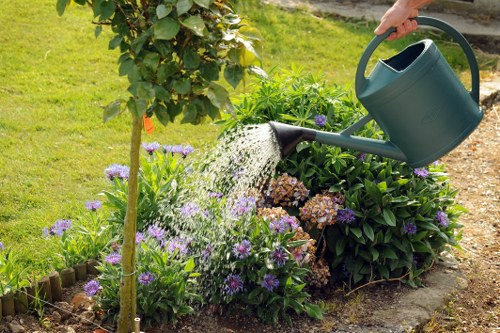
Eltham's unique climate and soil conditions make it a haven for gardeners. The area enjoys a temperate climate with adequate rainfall, which is perfect for most plant varieties. Additionally, the soil in Eltham is rich in nutrients, providing a solid foundation for healthy plant growth.
The community in Eltham is also highly supportive of gardening initiatives. There are numerous local events, workshops, and gardening clubs that foster a sense of camaraderie among gardeners. This supportive environment encourages both novice and experienced gardeners to share knowledge and tips.
Moreover, Eltham boasts several public gardens and green spaces that serve as inspiration for local gardeners. These spaces not only enhance the beauty of the area but also provide valuable learning opportunities.
Top Gardening Spots in Eltham
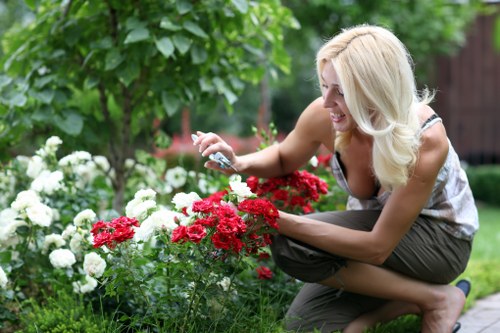
Eltham is home to some of the most picturesque gardens in London. Here are a few top spots you shouldn't miss:
- Eltham Palace Gardens: A stunning blend of Art Deco and medieval styles, these gardens offer a serene environment perfect for relaxation and plant cultivation.
- Bedgebury National Pinetum: Just a short drive from Eltham, Bedgebury boasts an extensive collection of conifers and other tree species, making it a must-visit for arbor enthusiasts.
- King George's Park: This expansive park features beautifully manicured lawns, flower beds, and walking paths, providing ample space for gardening activities.
Each of these locations offers unique features that can inspire your own gardening projects at home.
Essential Gardening Tips for Eltham Gardeners
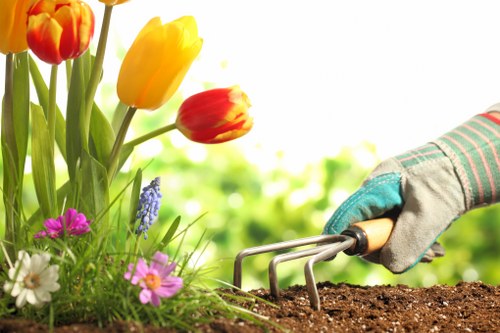
To ensure your garden in Eltham thrives, consider these essential tips:
- Know Your Soil: Test your soil to understand its pH level and nutrient content. This will help you choose the right plants and fertilizers.
- Choose the Right Plants: Select plants that are well-suited to Eltham's climate and soil conditions. Native plants are often the best choice as they require less maintenance.
- Regular Maintenance: Consistent watering, weeding, and pruning are crucial for a healthy garden. Establish a routine to keep your garden in top shape.
- Utilize Compost: Composting kitchen and garden waste enriches your soil, promoting healthy plant growth.
- Plan for Pests: Implement natural pest control methods to protect your garden without harming the environment.
Following these tips will help you create a lush and sustainable garden in Eltham.
Local Resources for Gardeners in Eltham
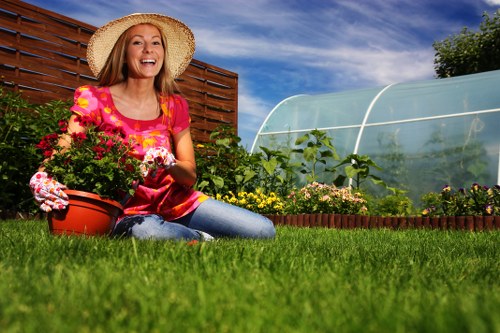
Eltham offers a variety of resources to support your gardening endeavors:
- Local Nurseries: Eltham is home to several nurseries that provide a wide range of plants, seeds, and gardening supplies. Staff are often knowledgeable and can offer personalized advice.
- Community Gardens: Participate in community gardening projects to gain hands-on experience and connect with fellow gardeners.
- Gardening Workshops: Attend workshops and seminars to learn new techniques and stay updated on the latest gardening trends.
- Online Forums: Engage with online gardening communities focused on Eltham to exchange tips, ask questions, and share your progress.
These resources are invaluable for both beginners and experienced gardeners looking to enhance their skills.
Gardening Events and Clubs in Eltham
Staying involved in gardening events and clubs can greatly enhance your gardening experience in Eltham. Here are some opportunities to consider:
- Eltham Garden Club: A community-focused club that hosts regular meetings, plant swaps, and educational workshops.
- Annual Flower Shows: Participate in or attend flower shows to showcase your garden and gain inspiration from others.
- Workshops and Seminars: Learn about specialized topics such as organic gardening, landscaping, and seasonal planting.
- Garden Tours: Join guided tours of local gardens to see different styles and techniques in action.
These events and clubs provide excellent opportunities to learn, share, and grow as a gardener.
Seasonal Gardening in Eltham
Understanding the seasonal changes in Eltham is key to maintaining a productive garden throughout the year. Here's a month-by-month guide:
- Spring: Focus on planting new seeds, preparing your soil, and starting early vegetables like peas and lettuce.
- Summer: Maintain your garden by watering regularly, pruning plants, and harvesting early crops.
- Autumn: Clear out spent plants, plant bulbs for next spring, and prepare your garden for the cooler months.
- Winter: Protect sensitive plants, plan your garden layout for the coming year, and use this time for indoor gardening projects.
Adapting your gardening practices to each season will help your garden remain healthy and vibrant year-round.
10-15 Nearby Areas to Eltham for Gardeners
Eltham is surrounded by several areas that are perfect for gardening enthusiasts. Here are some of the closest and most notable:
- Kidbrooke: Just west of Eltham, Kidbrooke offers beautiful public gardens and community gardening initiatives.
- Chislehurst: Known for its large parklands and horticultural events, Chislehurst is a great place to explore new gardening ideas.
- Lee: Close by, Lee features local nurseries and a strong gardening community with regular meetups.
- Blackheath: This area is famous for its open spaces and community gardens, providing ample inspiration for gardeners.
- Bexleyheath: Offering a variety of plant shops and gardening services, Bexleyheath is a valuable resource for local gardeners.
- Savenake: Known for its historic gardens and greenhouses, Savenake is a must-visit for gardening enthusiasts.
- Welling: Welling offers community gardens and regular gardening workshops to support local gardeners.
- Sydmonton: With its own community garden projects, Sydmonton is an excellent area to engage with other gardeners.
- Sidcup: Sidcup features several public gardens and local gardening clubs that cater to all skill levels.
- Bexley: Offering extensive parklands and gardening resources, Bexley is a hub for local gardening activities.
- Barry Island: Known for its family-friendly parks and gardens, Barry Island is ideal for gardeners of all ages.
- Brentwood: Brentwood has numerous gardening shops and a vibrant community of plant lovers.
- Upper Lee: Upper Lee offers beautiful garden spaces and community gardening programs.
- Sidcup Meadows: This area is perfect for those who enjoy wildflower gardening and natural landscaping.
- Southborough: Southborough features well-maintained public gardens and offers gardening courses for enthusiasts.
These nearby areas provide additional resources, inspiration, and community for gardeners in Eltham.
Sustainable Gardening Practices in Eltham
Adopting sustainable gardening practices is essential for maintaining a healthy environment and ensuring long-term garden productivity. Here are some methods to incorporate sustainability into your Eltham garden:
- Composting: Recycling kitchen and garden waste into compost enriches your soil naturally, reducing the need for chemical fertilizers.
- Rainwater Harvesting: Collecting rainwater for irrigation helps conserve water and lowers your water bills.
- Organic Pest Control: Use natural predators and organic pesticides to manage pests without harming beneficial insects or the environment.
- Drought-Resistant Plants: Plant species that require less water to minimize water usage and sustain your garden during dry periods.
- Mulching: Applying mulch helps retain soil moisture, suppresses weeds, and improves soil quality.
Implementing these practices will make your Eltham garden more eco-friendly and sustainable.
Choosing the Right Tools for Your Garden
Having the right tools is essential for effective gardening. Here are some must-have tools for Eltham gardeners:
- Hand Trowel: Ideal for digging small holes, transplanting seedlings, and other precision tasks.
- Pruning Shears: Essential for trimming plants, shaping shrubs, and removing dead growth.
- Garden Fork: Useful for turning soil, aerating garden beds, and incorporating compost.
- Watering Can: Provides controlled watering for delicate plants and seedlings.
- Gloves: Protect your hands from dirt, thorns, and potential injuries while gardening.
- Wheelbarrow: Helps transport soil, compost, plants, and other materials around your garden.
- Garden Hose: Ensures efficient watering, especially for larger garden areas.
Investing in quality tools will make your gardening tasks easier and more enjoyable.
Optimizing Your Garden Layout
A well-planned garden layout can enhance both the aesthetics and functionality of your garden. Here are some layout tips for Eltham gardeners:
- Consider Sunlight: Place sun-loving plants in areas that receive the most sunlight, while shade-tolerant plants should be positioned in shadier spots.
- Group Similar Plants: Planting similar species together makes maintenance easier and creates a cohesive look.
- Pathways: Incorporate pathways to allow easy access to different parts of your garden without disturbing plant growth.
- Vertical Gardening: Use trellises and vertical structures to maximize space and add visual interest.
- Raised Beds: These can improve soil drainage, reduce weed growth, and make gardening more accessible.
Thoughtful garden layout planning can lead to a more productive and visually appealing garden.
Maintaining Healthy Soil
Healthy soil is the foundation of a thriving garden. Here are some tips to maintain and improve your soil in Eltham:
- Regular Testing: Test your soil periodically to monitor pH levels and nutrient content, allowing you to make necessary adjustments.
- Organic Matter: Incorporate organic matter like compost or well-rotted manure to enrich the soil and improve its structure.
- Crop Rotation: Rotate plant families each season to prevent soil depletion and reduce pest and disease buildup.
- Cover Crops: Plant cover crops during off-seasons to protect the soil from erosion and enhance fertility.
- Avoid Compaction: Minimize walking on garden beds to prevent soil compaction, which can hinder root growth.
Maintaining healthy soil ensures your plants have the nutrients they need to grow strong and resilient.
Watering Techniques for Eltham Gardens
Proper watering is crucial for garden health, especially in areas like Eltham where seasonal variations can affect moisture levels. Here are some effective watering techniques:
- Deep Watering: Water deeply but less frequently to encourage deep root growth and improve plant drought resistance.
- Early Morning Irrigation: Watering in the early morning reduces evaporation and allows plants to absorb moisture before the heat of the day.
- Drip Irrigation: This method delivers water directly to the plant roots, minimizing waste and reducing the risk of disease.
- Mulching: Apply mulch around plants to retain soil moisture, suppress weeds, and regulate soil temperature.
- Rainwater Collection: Use rain barrels to collect and store rainwater for garden use, promoting sustainable watering practices.
Implementing these watering techniques can help maintain optimal moisture levels and promote healthy plant growth.
Choosing the Right Fertilizers
Fertilizers provide essential nutrients that help plants grow and thrive. Here are some tips for selecting and using fertilizers in your Eltham garden:
- Organic Fertilizers: Options like compost, bone meal, and fish emulsion are environmentally friendly and improve soil health.
- Synthetic Fertilizers: These provide concentrated nutrients but should be used sparingly to avoid soil and water pollution.
- Balanced Nutrients: Choose fertilizers that offer a balanced mix of nitrogen, phosphorus, and potassium to support overall plant health.
- Application Timing: Apply fertilizers during the growing season when plants can best absorb the nutrients.
- Follow Instructions: Always adhere to the manufacturer's guidelines to prevent over-fertilization, which can harm plants.
Selecting the right fertilizers and applying them correctly will enhance your garden's productivity and plant vitality.
Dealing with Garden Pests
Pests can pose a significant challenge to gardeners. Here are some strategies to manage pests effectively in your Eltham garden:
- Identify the Pests: Accurate identification is the first step in effective pest control. Different pests require different management strategies.
- Natural Predators: Encourage beneficial insects like ladybugs and lacewings that prey on common garden pests.
- Neem Oil: An organic pesticide that is effective against a variety of pests without harming beneficial insects.
- Handpicking: Remove pests like caterpillars and beetles by hand from affected plants.
- Barriers: Use physical barriers like netting or row covers to protect plants from larger pests.
Implementing these pest management strategies will help keep your garden healthy and pest-free.
Companion Planting Benefits
Companion planting involves growing certain plants together to enhance growth and deter pests. Here are some benefits of companion planting in Eltham:
- Pest Control: Some plants naturally repel pests that might otherwise damage your crops.
- Improved Growth: Companion plants can provide shade, support, or nutrients to each other, promoting healthier growth.
- Enhanced Flavor: Certain plant combinations can improve the flavor and quality of the produce.
- Efficient Use of Space: Companion planting allows you to maximize your garden space by pairing plants that complement each other's growth habits.
- Soil Health: Different plants can contribute to soil fertility by fixing nitrogen or adding organic matter.
Utilizing companion planting techniques can lead to a more productive and resilient garden.
Gardening for Wildlife
Creating a garden that supports local wildlife can enhance biodiversity and ecological balance. Here are some tips for gardening for wildlife in Eltham:
- Plant Native Species: Native plants provide essential habitat and food sources for local wildlife.
- Provide Water Sources: Install birdbaths or small ponds to offer water for birds, insects, and other creatures.
- Create Shelter: Use shrubs, trees, and ground covers to provide shelter and nesting sites for wildlife.
- Avoid Pesticides: Reducing or eliminating pesticide use helps protect beneficial insects and other wildlife.
- Offer Food: Plant flowers that attract pollinators and provide seed-bearing plants for birds.
By designing your garden to support wildlife, you contribute to a healthy and balanced ecosystem.
Indoor Gardening Options
Even if space is limited, indoor gardening can be a rewarding alternative. Here are some indoor gardening ideas for Eltham residents:
- Herb Gardens: Grow herbs like basil, mint, and thyme on your windowsill for easy access and fresh flavors.
- Container Plants: Use pots and containers to grow a variety of plants indoors, including flowers, vegetables, and small shrubs.
- Hydroponics: Explore soilless gardening methods like hydroponics to grow plants efficiently indoors.
- Terrariums: Create miniature ecosystems with succulents and air plants in glass containers for a decorative touch.
- Vertical Gardens: Utilize vertical space with wall-mounted planters or hanging baskets to maximize indoor gardening potential.
Indoor gardening allows you to enjoy gardening year-round, regardless of outdoor conditions.
Conclusion
Gardeners in Eltham have access to a wealth of resources, supportive communities, and ideal growing conditions that make gardening a rewarding pursuit. By utilizing local resources, adopting sustainable practices, and staying engaged with the gardening community, you can cultivate a beautiful and thriving garden in Eltham.
Whether you're growing ornamental flowers, vegetables, or creating a wildlife-friendly habitat, Eltham provides the perfect backdrop for your gardening endeavors.
Frequently Asked Questions
1. What is the best time to start planting in Eltham?
The best time to start planting in Eltham is in early spring when the soil begins to warm up. This allows plants to establish before the heat of summer. However, some plants can also be planted in late summer for autumn harvests.
2. Are there any local gardening clubs in Eltham?
Yes, Eltham has several gardening clubs that host regular meetings, workshops, and community events. These clubs are a great way to meet fellow gardeners and share knowledge.
3. Where can I find native plants in Eltham?
Local nurseries and garden centers in Eltham typically carry a variety of native plants. Additionally, community gardens and gardening clubs often organize plant swaps where you can obtain native species.
4. How can I attract pollinators to my Eltham garden?
To attract pollinators, plant a variety of flowering plants that bloom at different times of the year. Additionally, provide water sources and avoid using pesticides that can harm beneficial insects.
5. What are some sustainable gardening practices suitable for Eltham?
Sustainable gardening practices for Eltham include composting, rainwater harvesting, using organic fertilizers, planting drought-resistant species, and minimizing chemical pesticide use.